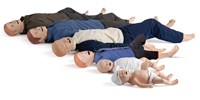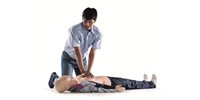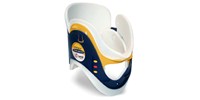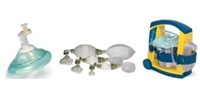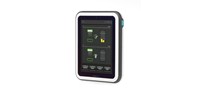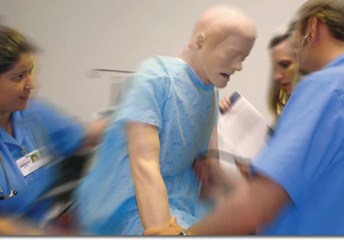Darton College of Nursing
The Challenge
It happens too frequently. A patient simulator is purchased by a nursing school, board, or a group of generous benefactors with all the best intentions. Then, the project “champion” or Lab Coordinator leaves, and a volunteer or appointed person steps into this critical role, unaware of the purchase – such is the case at Georgia’s Darton College.
The Customer
The Associate Degree Program in Nursing at Darton College is a five semester program planned to prepare the graduate to function as a nurse in first-level staff positions in hospitals and comparable agencies.
The Journey
The Local Emergency Planning Committee for Dougherty County purchased a Laerdal SimMan® Patient Simulator back in 2004. Darton College agreed to house the simulator and offer training at the college and in the community. Unfortunately, the person responsible for the product changed jobs, and the SimMan went unused. That’s when Tracy Suber, MSN, RN stepped in. Suber is the Coordinator of the “Bridge Program” at Darton College of Nursing, a program that assists LPNs and Paramedics in achieving their Associate Degree in 15 months.
Suber said she and collegue, Kristie Smith, soon discovered the SimMan and declared it “a jewel...” They attended SimMan Introductory training in February of 2007 and immediately began working on faculty buy-in for use in their curriculum. Their biggest obstacle was the time needed to develop top-notch scenarios. “As a nurse educator, it’s difficult to find the time to prepare for lectures, adequately advise, or just be accessible to the students… finding the time to develop scenarios was difficult.”
The Discovery
Suber said her Laerdal rep told her about the National League forNursing Scenario package for SimMan and she immediately got excited.
“I knew if the NLN had a hand in this, they would be great for use in nursing curriculum.” She was very excited “to see actual scenarios where the nursing process was at work.”
The Solution
The “Simulation in Nursing Education Scenarios” package, developed in partnership by the NLN and Laerdal, is specifi cally designed for nurse educators. The 20 preconfi gured scenarios include 10 surgical and 10 medical to challenge students at different levels. The package includes basic and advanced scenarios with cases ranging from obtaining vital signs, through recognizing and managing life-threatening complications. And, they’re mapped to the 2007 NCLEX.
The Implementation
Suber now uses the tri-fold poster that comes with the scenario package to guide students through the scenario. She is also planning to add a documentation station as well as a better debriefi ng session. She says the scenarios have greatly enhanced training. Suber stated “We are planning to have an entire clinical group (6-10 students) rotate through an actual simulation with 1 or 2 of the NLN scenarios. Following the scenario, we will have a debriefing session (with video footage of their performance) to identify their strengths/weaknesses at the bedside. Next, we will rotate the students to a documentation station where they will document their full scenario utilizing the nursing process (A – assessment, I – implementation, and E – evaluation).”
The Results
“The NLN scenarios have decreased the workload for me as an educator. I can utilize the doctor’s orders pages (the actual tri-fold scenario), gather the appropriate equipment, etc., and go to work.” Suber has big plans for SimMan, the NLN Scenario package and their lab at Darton College. She wants to make it easy for other educators at Darton to be able to use simulation. “We have been working with our division secretaries to gather all of the appropriate equipment so that we can make our simulation lab better. We are working on getting plastic bins and labeling the patient name from the scenarios on to the appropriate bin so that, eventually, any of our educators can go into the SimLab and run a scenario.” Suber is more excited than ever about the use of simulation and its effect on future healthcare providers. “The State of Georgia has not decided an actual number of hours or a percentage that we can count this toward for clinical hours, but we do know that this is being looked into. Research shows that simulation can be very effective and I believe with a decrease in allocated clinical spaces and an increase in enrollment numbers it will become a very necessary part of our curriculum in time.”
Darton College Nursing Division
“The principle mission of the Darton College Nursing Division is to assist in meeting the healthcare needs of the community by providing a quality educational program that prepares a safe, competent, entry-level nurse, who is personally responsible, demonstrates ethical behavior and is prepared to pass the National (NLCEX) licensing examination.”

 USA
USA
